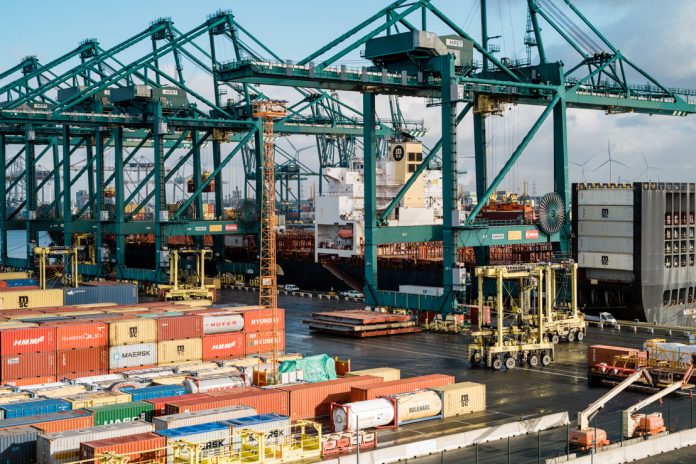Port of Antwerp has announced that the increase in feeder transhipment volumes and the temporary suspension of certain direct deepsea calls in the United Kingdom resulted in a staeady growth in its shortsea connections in the first four months of the year.
The suspended deepsea calls have resulted in additional shortsea connections to and from (Northern) Ireland and British ports such as Liverpool and London. Furthermore, goods from the hinterland of the port of Antwerp are increasingly being carried directly to Ireland instead of via the ‘land bridge’ with the United Kingdom.
The turnaround time is faster as a result of the customs regulations that came into force after Brexit, according to the Port of Antwerp.
“This is also attracting new goods flows that are bound for the United Kingdom via (Northern) Ireland,” said the port. Grimaldi, for example, is adding new services to Ireland in order to meet customer demand for transport post-Brexit, while the new Antwerp-Cork RoRo service (two departures per week) is creating a competitive and eco-friendlier alternative to the UK land bridge.
Furthermore, Unifeeder has increased the frequency of its service to St. Petersburg to three departures per week. There is also a new weekly departure on Tuesdays connecting PSA Antwerp and Antwerp Gateway with Riga and Klaipeda. Meanwhile, WALLENIUS SOL is putting on an additional ship on the route to western Finland (Kokkola and Rauma).
“The increase in frequencies reflects the growing demand for connections to and from the Baltic Sea,” pointed out the Port of Antwerp.
Additional rail connections are providing support to the higher frequency of shortsea connections, according to an announcement, while the major Belgian port said logistics chain combining railway transport and shortsea is creating new opportunities as destinations in Portugal and parts of Spain now have rapid connections with destinations in Central and Eastern Europe.
“Feeder volumes are extremely important for the growth of shortsea from Antwerp, but they also create challeneges” noted Jan Cuyt, Business Development Advisor at Port of Antwerp, and went on to comment, “Shortsea is dependent on deepsea as far as scheduling and planning are concerned. Predictable turnaround times are crucial in order to be able to offer efficient shortsea connections.”







